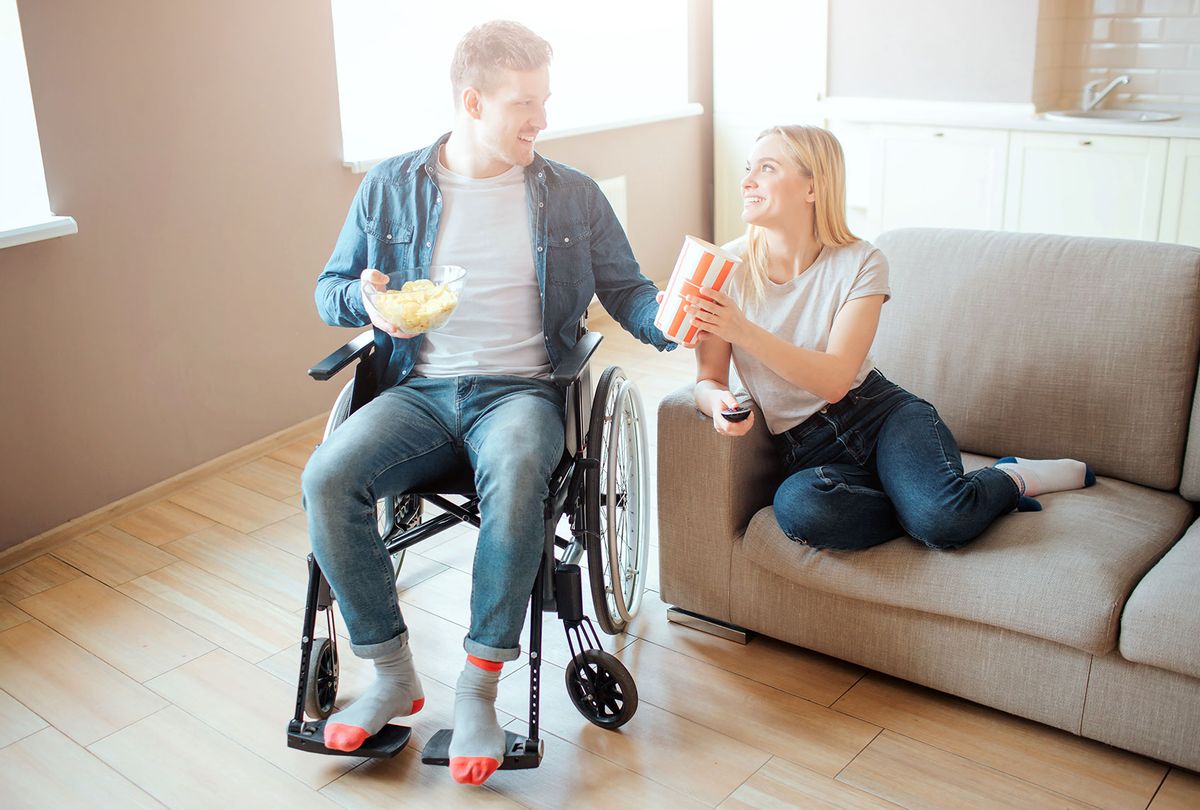When she was in her mid-30s, Angela Talent was diagnosed with Complex Regional Pain Syndrome, a rare neurological disorder that eventually deformed her hands and limited her ability to walk for long distances. She went from living independently to requiring a caregiver many of her daily activities.
This past year living through the pandemic was unbelievably difficult, but Talent hopes that it helped individuals without disabilities empathize with what she goes through when it comes to accessing cultural opportunities and entertainment.
"I'm grateful for it because other people that found it easy to go to a movie, participate in what I used to call 'regular life,' weren't able to do that anymore and suddenly they found themselves in a very similar situation to what I have been experiencing for more than 10 years now," Talent said. "Suddenly, they understood what it was like to be limited to their home and had to get creative in finding new ways to exist in this world."
A lot has changed with how many Americans engage in cultural activities since the World Health Organization declared the novel coronavirus a global pandemic in March 2020. Almost overnight, concert halls, museums and movie theaters closed to the public. Producers, staff and artists had to adapt to what would soon be called "the new normal."
Soon, it seemed that everything migrated online in some capacity.
Google teamed up with 2,500 museums worldwide, including the Guggenheim and the Louvre, to offer virtual tours and online collections. The Metropolitan Opera in New York City began streaming concerts for free, while many local musicians started performing concerts from their living rooms. Drag shows, cabarets, book readings and lectures could all be held via Zoom.
Eventually, Warner Brothers announced that all of its movies set for release in 2021 would simultaneously premiere in theaters and on its streaming service HBO Max — including anticipated hits like "The Suicide Squad," "Godzilla vs. Kong" and "Matrix 4."
Before the pandemic, Talent said, negotiating a movie theater was difficult. It's painful for her to stand in lines for prolonged periods of time and incurred the additional cost of her caregiver's ticket.
"I absolutely love that I get to go to the movies at home and I don't have to negotiate waiting in lines or attempting to walk up the ramp or one or two stairs to get to a seat that I like and want to sit in," she said. "Now I can comfortably do it from home without paying a price. By price, I mean increased pain and emotional pain from the pain or the stress of having a disability in this world of ours."
She continued: "My disability is extremely painful and I have to decide how much time and energy I can put into an outing and if I'm even capable of going when the time comes."
Meenakshi Das, an accessibility advocate who founded the organization Working with Disabilities, has also noted the increased accessibility across the board.
"I definitely believe it has been positive," she said. "Not just streaming movies from home and virtual museum tours, et cetera — even other cultural experiences are becoming accessible. For example, Airbnb's new online experiences service has activities ranging from meditation to cooking classes which are taught from people all around the world."
As more and more Americans are getting vaccinated and many are eager for life to normalize again, Das hopes the strides made towards greater accessibility will not just endure, but continue to improve and become more inclusive.
"We need to consider the accessibility of these online platforms," she said. "It is important to remember that just because COVID-19 has given us a multitude of ways to experience things, not all of those ways are accessible."
She said she wanted to do a virtual game hour for a group of which she is a part, but they couldn't find any screen-reader accessible games so her blind colleague could participate. And, Das said, while streaming services like Hulu and Netflix are doing great in terms of captioning, much of the content lacks audio descriptions.
"Since virtual cultural experiences are so dependent on technology, we need to work towards building stronger infrastructure towards accessible technology," she said. "This is essential so that it is able to support a variety of interactive accessible experiences, and not just limited to streaming movies. Companies must develop their services with inclusive design in mind so they are accessible and are able to reach a wide range of audience."
The situation is nuanced. On one hand, Talent misses being out in public and craves social interaction, just like everyone else; but, she said, accessibility is about having a variety of options for participation, and that's something she hopes doesn't dissipate as more cultural centers and venues reopen.
"Some of the biggest improvements that can be made with entertainment is continuing to make it more accessible," she said. "I personally love getting to see the world from home where I don't have to pay a price be it physical, emotional, financial — paying for two people versus one — or otherwise."



Shares